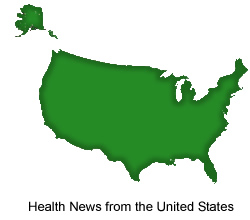
Date Published: 17 March 2010
Adding common genetic variants to breast cancer risk models offers only small benefit

Scientists report that breast cancer risk assessment models, which predict a woman’s chance of developing breast cancer, do not perform substantially better when they include common inherited genetic variants recently linked to the disease. Therefore, recommendations for breast cancer screening or treatments will remain unchanged for most women. The study, led by investigators from the National Cancer Institute (NCI), part of the National Institutes of Health, and the Harvard School of Public Health (HSPH) appears in the March 18, 2010 issue of the New England Journal of Medicine.
“ Unlike the situation for women with a strong family history of breast cancer, in which a search for rare disease-causing variants may be useful, for women without a strong family history breast cancer risk prediction based on common risk variants is currently of marginal utility,” said lead author David Hunter, Dean for Academic Affairs and Vincent L. Gregory Professor in Cancer Prevention at HSPH.
Findings from genome-wide association studies have identified multiple genetic variants associated with breast cancer. To test whether this information would increase the value of breast cancer risk models, the researchers assembled information on traditional risk factors and 10 common genetic variants associated with breast cancer in 5,590 breast cancer patients and 5,998 women without cancer, 50 to 79 years of age, from four cohort studies and one case control study.
The investigators examined the predictive accuracy of the commonly used Gail model, which uses information on a woman’s own personal medical and reproductive history, as well as the history of breast cancer among her first-degree relatives (mother, sisters and children) to estimate her risk of developing invasive breast cancer within the next five years, or over her lifetime. The investigators then tested the accuracy of a model using the newly discovered genetic factors and found that it was as good as the Gail model alone. An inclusive model, using both genetic and Gail risk factors, performed only slightly better than either model alone.
The authors emphasized that the genome-wide association studies represent an early stage in understanding the inherited components of breast cancer risk.
Source:  Harvard
School of Public Health, USA..
Harvard
School of Public Health, USA..
![]()

